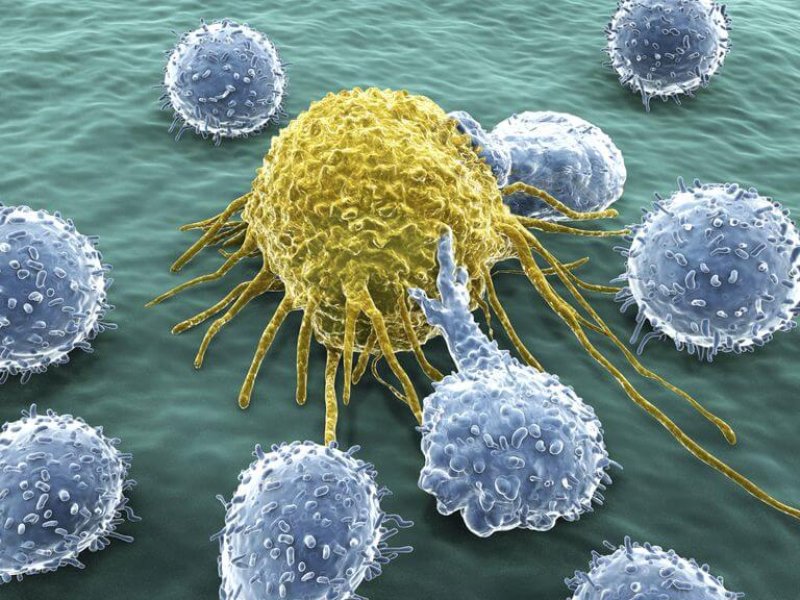Our immune system is our body’s natural defence against infection, but it also attacks cancerous cells.
The scientists were looking for “unconventional” and previously undiscovered ways the immune system naturally attacks tumours.
What they found was a T-cell inside people’s blood. This is an immune cell that can scan the body to assess whether there is a threat that needs to be eliminated.
…
T-cells have “receptors” on their surface that allow them to “see” at a chemical level.
The Cardiff team discovered a T-cell and its receptor that could find and kill a wide range of cancerous cells in the lab including lung, skin, blood, colon, breast, bone, prostate, ovarian, kidney and cervical cancer cells.
Crucially, it left normal tissues untouched.
Exactly how it does this is still being explored.
This particular T-cell receptor interacts with a molecule called MR1, which is on the surface of every cell in the human body.
It is thought MR1 is flagging the distorted metabolism going on inside a cancerous cell to the immune system.
“We are the first to describe a T-cell that finds MR1 in cancer cells – that hasn’t been done before, this is the first of its kind,” research fellow Garry Dolton told the BBC.































